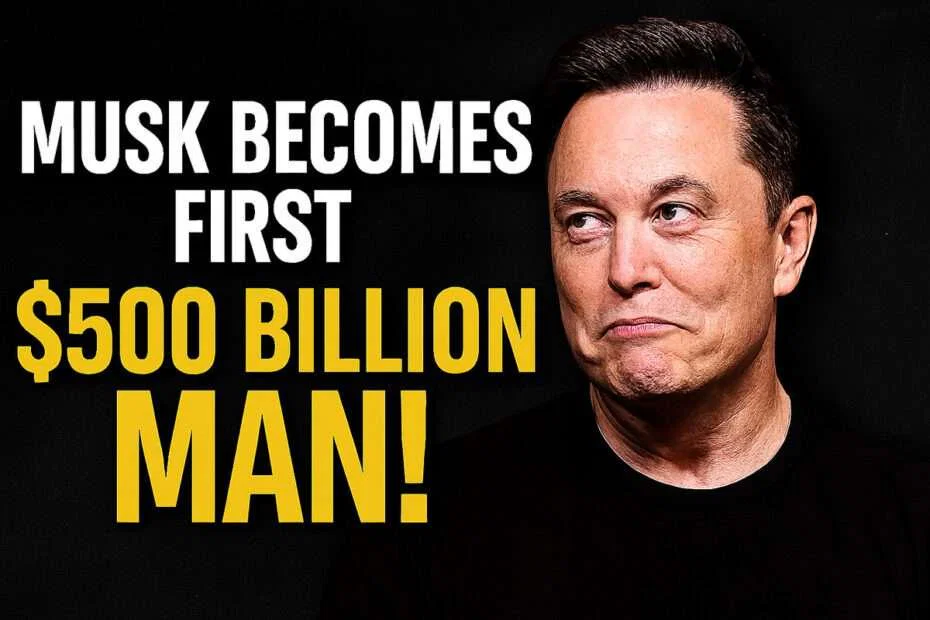Elon Musk has achieved a historic financial milestone, becoming the first individual to reach a net worth exceeding $500 billion, according to Forbes. While this threshold proved temporary, the achievement marks an unprecedented moment in wealth accumulation.
The surge in Musk’s fortune stemmed primarily from Tesla’s exceptional third-quarter performance. The electric vehicle manufacturer delivered 497,099 vehicles worldwide between July and September, representing a 7.4% increase compared to the previous year and significantly exceeding the Bloomberg analyst consensus of 439,600 units. The Model Y and Model 3 accounted for 481,166 of these deliveries, posting a 9.4% increase year over year.
Industry analysts attribute Tesla’s strong quarterly results to a rush of consumer purchases ahead of the September 30 expiration of the federal $7,500 electric vehicle tax credit. This phenomenon drove similar performance across the sector, with Ford recording record electric vehicle sales and General Motors experiencing doubled sales during the same period. However, Tesla shares declined on October 2 despite the robust delivery numbers, as investors expressed concern about future demand without the tax incentive in place.
Market Uncertainty Following Tax Credit Expiration
The expiration of federal tax credits has introduced considerable uncertainty into the electric vehicle market. Kevin Roberts, director of economic and market intelligence at CarGurus, noted that while a decline in demand appears inevitable following the recent sales surge, the magnitude of that decline remains unclear. Ford Chief Executive Officer Jim Farley has projected that electric vehicle demand could potentially decrease by half without the tax credit support.
The industry response has been swift and varied. Several automakers have already canceled or scaled back their electric vehicle development plans. Pricing strategies have also shifted, with Hyundai reducing prices on its Ioniq electric SUV while Tesla has increased its lease pricing structure. These adjustments reflect the sector’s efforts to navigate a more challenging market environment.
Musk himself has signaled a strategic pivot for Tesla, emphasizing the company’s future direction toward autonomous vehicle technology, robotics, artificial intelligence, and energy deployment systems rather than focusing exclusively on traditional electric vehicle sales.
Investor Confidence Drives Valuation
Despite uncertainties surrounding Tesla’s core automotive business, investor confidence has remained robust, with shares appreciating approximately 15% year to date. This optimism reflects market belief in Musk’s capacity to position Tesla at the forefront of emerging technologies and business models.
The company’s board has proposed a substantial new compensation package for Musk valued at $1 trillion, which would grant him more than 423 million additional shares if approved by shareholders. This proposal underscores the board’s confidence in Musk’s leadership. Additionally, Musk recently purchased approximately $1 billion in Tesla stock, marking his first open-market acquisition of company shares since February 2020. These actions have reinforced market confidence despite near-term challenges facing the electric vehicle sector.
Global Wealth Rankings
The recent appreciation in Tesla’s stock price enabled Musk to reclaim the position of the world’s wealthiest individual from Oracle Chief Executive Officer Larry Ellison. Ellison had briefly held the top position on September 10 following a surge in Oracle’s stock price driven by strong earnings and significant artificial intelligence cloud contracts. Ellison’s net worth peaked at $393 billion but has since declined to approximately $350.7 billion, placing him second in global wealth rankings.
Maybe you would like other interesting articles?

